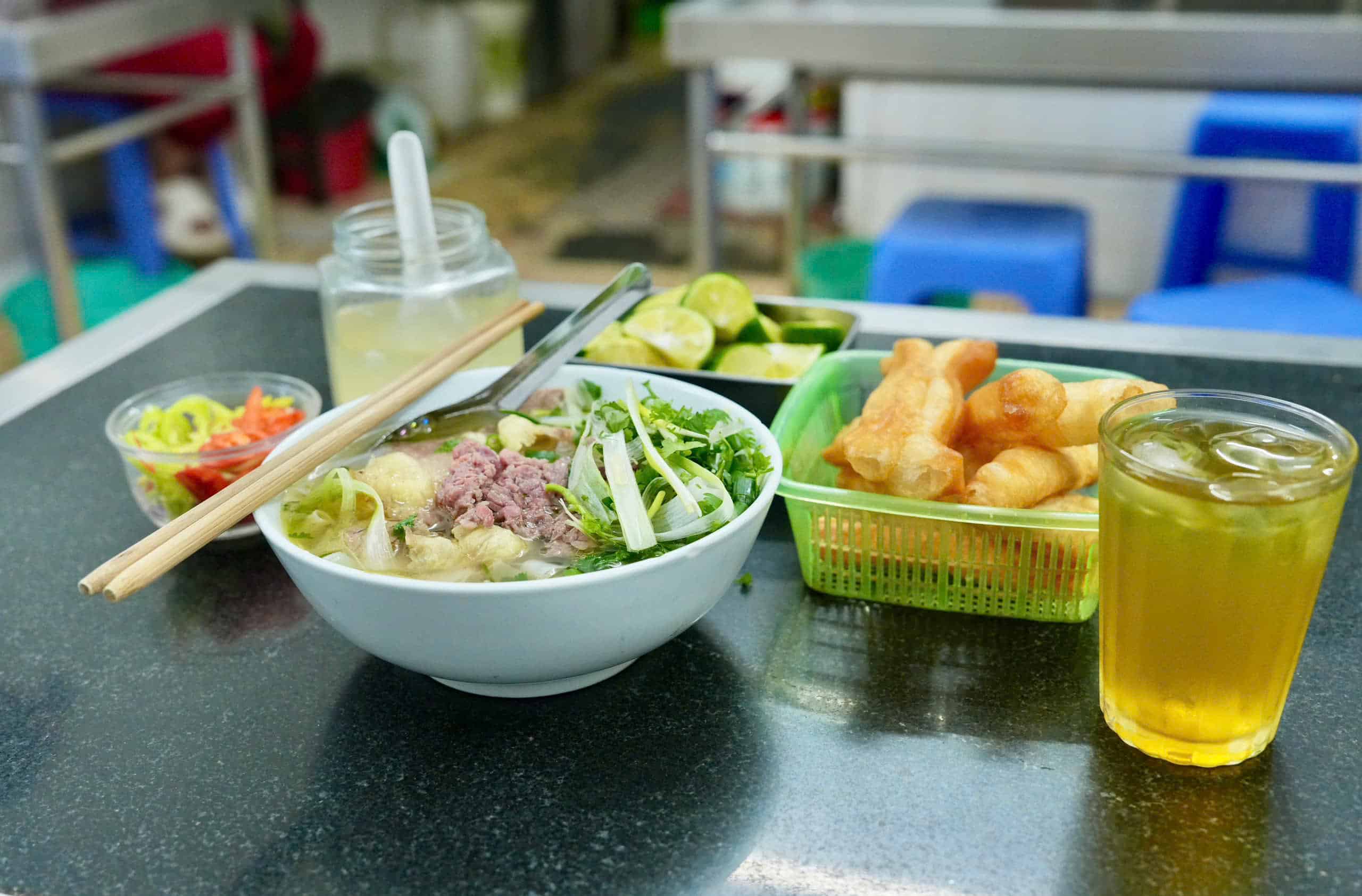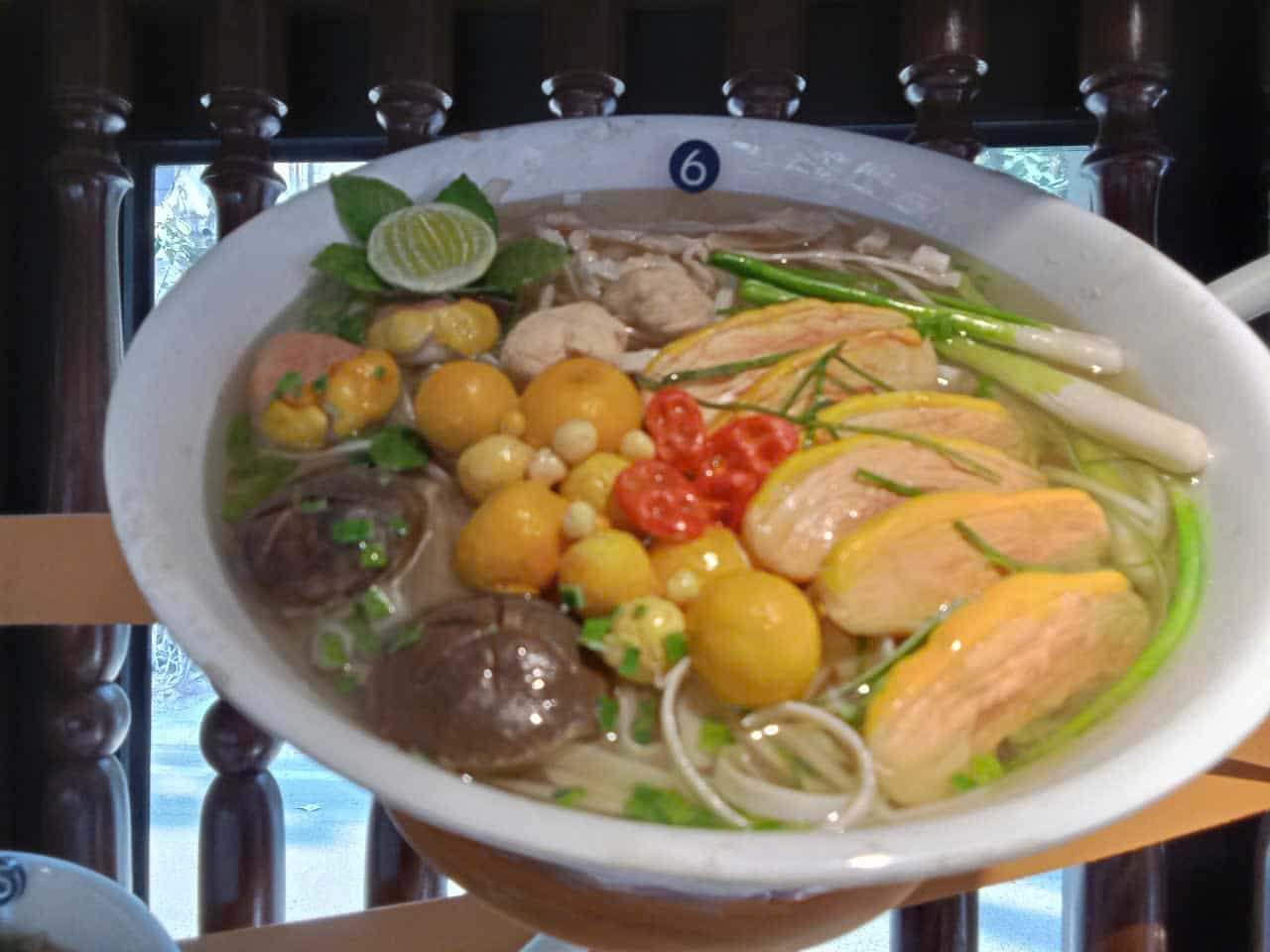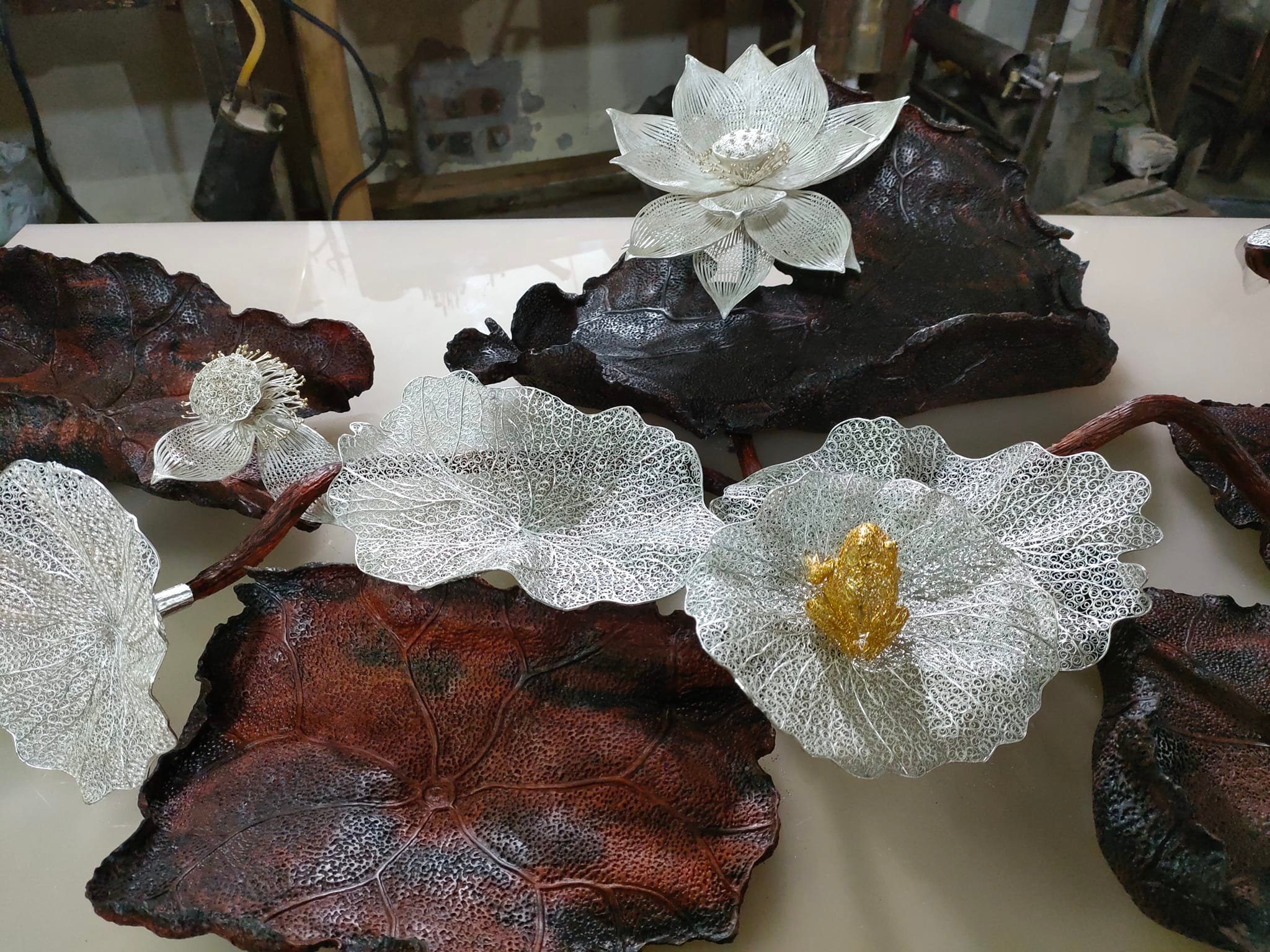At the conference on “Protecting and Promoting the Value of the Intangible Cultural Heritage of Hanoi Pho,” culinary artists Pham Thi Anh Tuyet and Bui Thi Suong shared memorable stories from international tourists about this iconic dish.
Promoting the value of Hanoi Pho is a key highlight of the Hanoi Culinary Culture Festival 2024, themed “Hanoi Connects the World.” The festival took place from November 29 to December 1 at Thong Nhat Park, Hai Ba Trung District.
Turning specialty into heritage
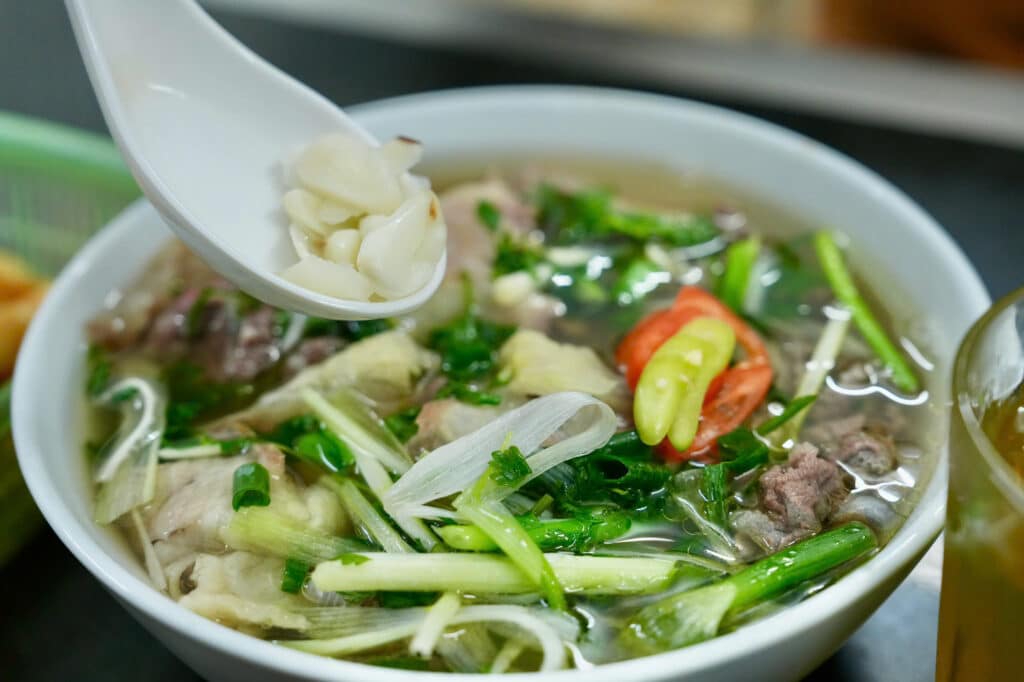
At the event, Nguyen Thanh Loi, Editor-in-Chief of the Economic & Urban Newspaper, which is media partner for the festival, stated that the conference was a key activity, highlighting the importance of protecting and promoting the value of Hanoi Pho as a National Intangible Cultural Heritage.
“No matter where they go, Vietnamese people take pride in enjoying traditional, delicious dishes that represent the culture and cuisine of the country as a whole, and Hanoi in particular,” Loi said.
The Ministry of Culture, Sports and Tourism’s designation of Hanoi Pho as a National Intangible Cultural Heritage is a significant step forward, further confirming that Hanoi cuisine is recognized not only by Vietnamese people but also internationally.”
After preparing Hanoi Pho for representatives of diplomatic organizations and artists attending the event, culinary artist Pham Thi Anh Tuyet recalled that when Pho was served to international guests and high-ranking foreign leaders, they were amazed by the dish and described it as a perfect combination of flavors.
“International guests really like Hanoi Pho, they highly commend the creative Vietnamese dish for its harmonious and subtle blend of spices,” said Tuyet.

Coming from Ho Chi Minh City, artisan Bui Thi Suong shared that she often introduces Vietnamese cuisine during her overseas trips. “Pho is the first dish we present in markets like Europe and Australia. In the past, pho was often referred to as ‘beef noodle soup’ in English, but now, every country uses the term ‘Pho.’ We are very proud of that,” she said.
According to Suong, pho has evolved differently in many places, such as the addition of other ingredients, but the key ones like beef bones, beef, sa sung (sea worm), cinnamon, and star anise must remain unchanged.
“In some countries, chefs even add fruits to pho, which is an interesting creative twist on the traditional flavor. However, as long as the traditional Vietnamese taste is maintained, such creative variations are acceptable, especially if they make the dish tastier, more beautiful, and better suited to the local tastes of different regions and countries.
Preserving the traditional flavor of Pho
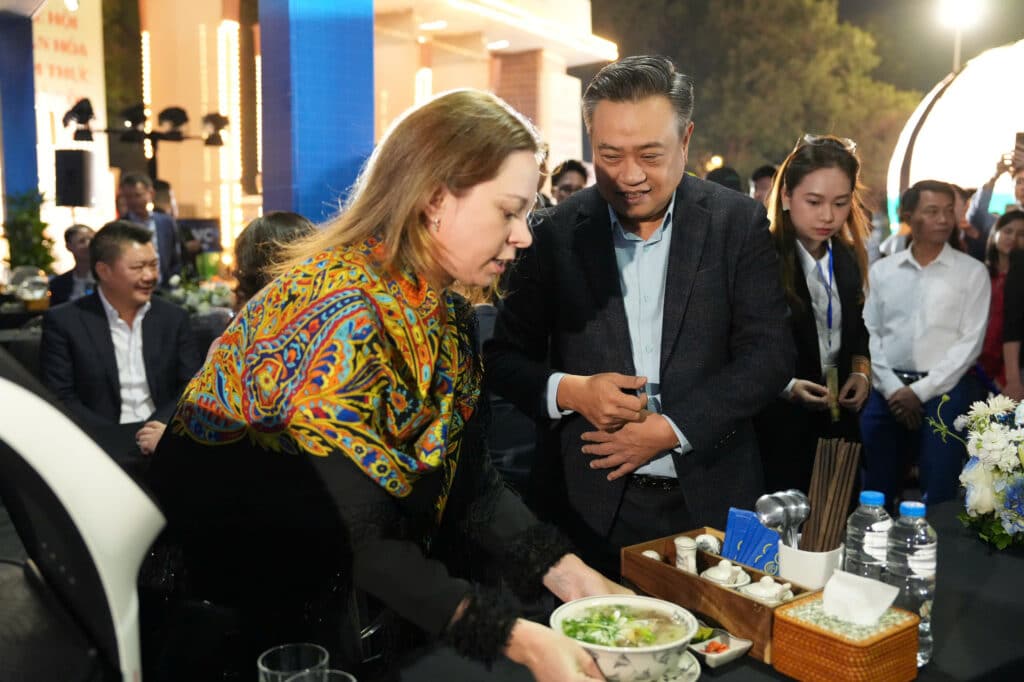
As culinary artist Anh Tuyet observes, the number of Pho restaurants in Hanoi has increased dramatically compared to the past, due to the growing supply and demand.
According to the artist, in the past, Hanoi Pho only came with beef, but now the dish has been diversified to satisfy diners’ tastes, including mixed pho, underdone pho, pho sot vang -Vietnamese version of bordelaise sauce with beef tendon, or pho rolls.
However, it’s still advisable to preserve the traditional features of Hanoi Pho in particular and Vietnamese Pho in general.
Tuyet revealed that a delectable bowl of Hanoi Pho requires beef bone broth simmered for multiple hours, combined with spices such as cinnamon, star anise, ginger and black cardamom. The broth must be clear, natural and gently sweet – without using MSG or artificial seasonings.
Hanoi Pho noodles are made from high quality, non-glutinous rice, that is spread thin and cut evenly. It’s crucial that they are soft and smooth, do not break when blanched and retain the natural aroma of the rice.
Hanoi beef pho uses fresh cuts such as flank steak, brisket and tendon. Scallions, cilantro, ground pepper, lime juice, and chili sauce are indispensable ingredients that create a harmonious balance for the bowl of Pho.
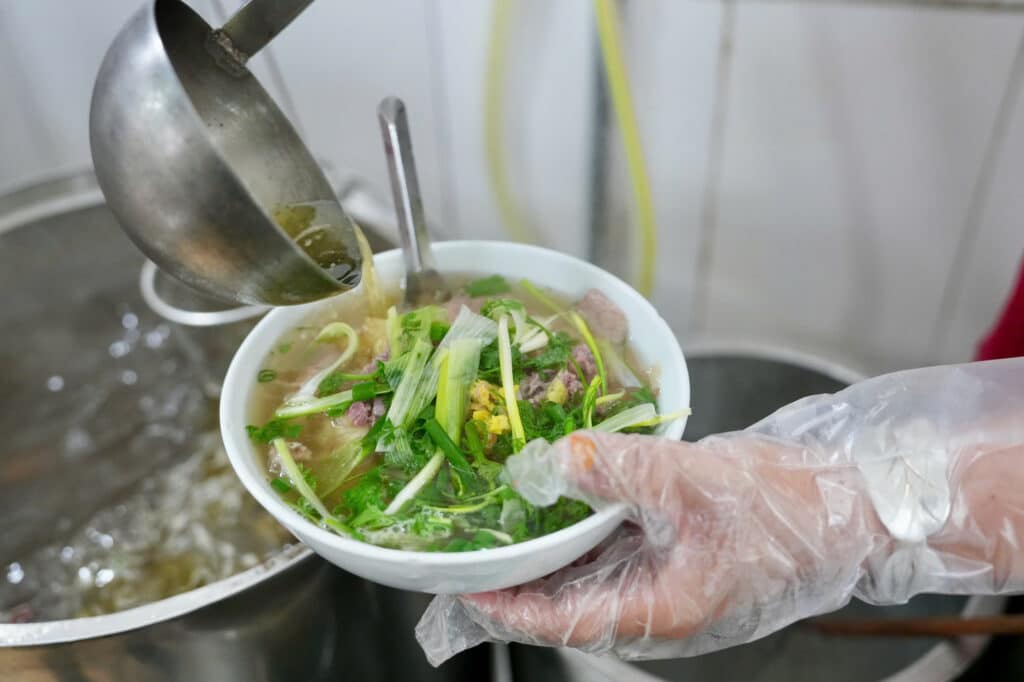
Let Pho goes global
Le Thi Minh Ly, Vice President of the Vietnam Cultural Heritage Association, said that the exact origin of pho remains unclear and is still a subject of debate. “What’s important is that pho is a long-standing creation of the Vietnamese people, and this creation has become a unique characteristic of Hanoi. That’s why Hanoi Pho is so famous.”
She said Hanoi Pho has been recognized as an intangible cultural heritage under the category of “folk knowledge.” What makes Hanoi Pho special is the use of ingredients and cooking techniques that have been passed down through generations.
“The chefs of this intangible cultural heritage are those who have handed down the craft over many generations. They not only practice pho-making for a living but also inject creativity and individuality into preserving the tradition, ensuring it remains unchanged, non-commercialized, and not transformed into another dish, thus creating their own brand,” Ly said.
“It’s necessary for the State to be responsible for the recognized heritage. Hanoi Pho is a value that the State must have a policy to protect,” Ly said.

During the discussion, Shinsuke Kajiwara, Deputy Director of the Business Division at Acecook Vietnam, shared that for the past 30 years, the company has been committed to preserving and enhancing Vietnam’s rich culinary traditions.
“Pho Hanoi is a truly unique dish, deeply intertwined with the culture and daily life of the local people,” he remarked.
“We are proud to play a role in promoting pho, both within Vietnam and to the world,” he added.
According to Pham Thi Lan Anh, Head of the Cultural Heritage of the Hanoi Department of Culture and Sports, the insights shared by the participants and artisans at this seminar will provide valuable suggestions for Hanoi on how to implement measures to protect and promote the intangible cultural heritage of Hanoi Pho in the coming years.
Through the Hanoi Culinary Culture Festival 2024, organizers hope that both residents and international visitors will gain a deeper understanding of Hanoi’s cuisine in general, and Hanoi Pho in particular.
By The Hanoi Times reporters


